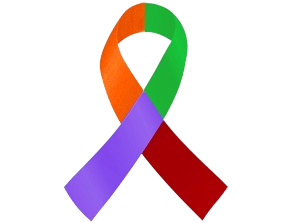Blood Cancer
About Blood Cancer
There are three main types of blood cancers. Leukemia is a cancer found in your blood and bone marrow, lymphoma is a blood cancer that affects the immue system and the lymphatic system, and myeloma is a blood cancer that specifically targets plasma cells (a white blood cell secreting antibodies). Each year, these types of cancer account for approximately 10% of all new cancer diagnoses.
Blood Cancer Key Facts
- An estimated 187,740 new cases of leukemia, lymphoma, and myeloma will be diagnosed in the U.S. in 2024, with 57,260 deaths expected to result from the diagnosis.
- Every three minutes, one person in the U.S. is diagnosed withblood cancer.
- Leukemias are the most common cancers in children and account for 28% of all childhood cancers.
- Estimates of more than 1.5 million people in the U.S. are either living with or in remission today from blood cancer.
Source: American Cancer Society’s Cancer Facts & Figures 2024 and The Leukemia & Lymphoma Society

Preventing blood cancers such as leukemia, lymphoma, and myeloma can be challenging, as many of the risk factors associated with these cancers are not easily modified or avoidable. According to the American Cancer Society (ACS), there are very limited known ways to prevent these types of blood cancer. However, the focus can be shifted towards:
- Early detection and management of the disease
- A healthy lifestyle that generally reduces the risk of cancer: healthy diet, regular physical activity, avoiding tobacco, avoiding chemical and radiation exposure, etc.
Even though specific prevention measures for these blood cancers are not well-defined due to the nature of the risk factor, maintaining an overall healthy lifestyle is always recommended and helpful to avoid different types of cancers.
Resource:
Risk Factors for Chronic Lymphocytic Leukemia | American Cancer Society
Risk Factors for Multiple Myeloma | American Cancer Society
Risk Factors for Chronic Myeloid Leukemia | American Cancer Society
If you have any of the symptoms below, it does not mean you have cancer but you should see your doctor or health care professional so that the cause can be found and treated, if needed.
Leukemia
- Feeling tired, weak, dizzy or lightheaded
- Headaches
- Shortness of breath
- Pale skin
- Bruises (or small red or purple spots) on the skin
- Bleeding, such as frequent or severe nosebleeds, bleeding gums, or heavy menstrual bleeding in women
- Swelling in the face, neck, arms, and upper chest (sometimes with a bluish-red color)
- Weight loss; Loss of appetite
- Fever; Night sweats
- Swelling in the abdomen
- Enlarged lymph nodes
- Bone or joint pain
- Infections that don’t go away or keep coming back
Lymphoma
- Enlarged lymph nodes
- Chills
- Fatigue
- Drenching night sweats
- Fever without an infection
- Weight loss
- Chest pain or pressure
- Shortness of breath or cough
- Severe or frequent infections
- Swollen abdomen (belly)
- Feeling full after only a small meal
- Easy bruising or bleeding
Myeloma
- Persistent or worsening tiredness
- Recurrent unexplained infections (such as pneumonia, sinus infection, or urinary tract infection)
- Back pain or any bone pain that is persistent or recurrent
- Swelling of the extremities
Source: American Cancer Society’s website and Leukemia and Lymphoma Society website 2024
- Age – riskier as you get older
- Sex – more common in men than in women
- Family history
- Race/ethnicity
- CLL (Chronic Lymphocytic Leukemia) is more common in North America and Europe than in Asia
- Multiple myeloma is more than twice as common in African Americans than in White Americans
- Radiation and chemical exposure
- Obesity
NFCR-Supported Researchers Working on Blood Cancer
Curt Civin, M.D.
University of Maryland
Michael B. Sporn, M.D.
Geisel School of Medicine
Cesare Spadoni, Ph.D.
University of London
Wei Zhang, Ph.D.
Wake Forest Baptist Medical Center















